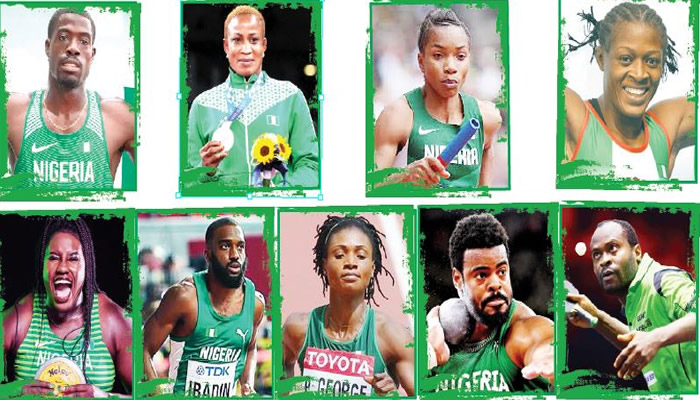
The London 2012 Olympic Games cast a shadow over Team Nigeria as the Paris 2024 Olympics concluded without a single medal, mirroring the dismal performance from 12 years ago.
The 84 Nigerian athletes participating in various disciplines such as athletics, basketball, boxing, table tennis, wrestling, and football fell short of expectations, prompting a moment of reflection for the self-proclaimed ‘Giant of Africa.’ Instead of resorting to blame games within sports federations, it is imperative for the ministry to kickstart preparations for the Los Angeles 2028 Games without delay.
The performance in Paris was inexcusable, as rightly noted by Sports Minister John Enoh, who labeled it a disaster. Despite brief moments of success, such as D’Tigress securing victories against Australia and Canada in women’s basketball, becoming the first African team to reach the quarterfinals, these achievements were overshadowed by setbacks like the disqualification of the men’s 4x400m relay team for a lane violation.
Nigeria’s reliance on a few key athletes backfired, with Tobi Amusan, the renowned world record holder in the women’s 100m hurdles, failing to progress past the semifinals. Controversies surrounding mismanagement of athlete registrations added to the woes faced by the team.
From the early exit of the Super Falcons to disappointment across boxing, wrestling, weightlifting, and table tennis events, the Olympics proved to be a challenging chapter for Nigerian sports.
The lackluster performance in Paris highlighted a broader trend, with Nigeria clinching only three medals, none of them gold, between the London and Paris Games. Despite some successes in Rio 2016 and Tokyo 2020, the overall picture suggests a need for significant improvement.
Meanwhile, other African nations excelled in disciplines traditionally associated with Nigeria’s strengths, underscoring the gap that needs to be addressed. The disparities in performance point to systemic issues, including underfunding, political interference in sports federations, and inadequate preparations.
The road to redemption lies in strategic reforms, starting with the appointment of competent sports officials and a revitalization of national sports competitions. Nigeria’s sporting glory days can be revived through proactive measures, sponsorships, and a renewed focus on talent development.
